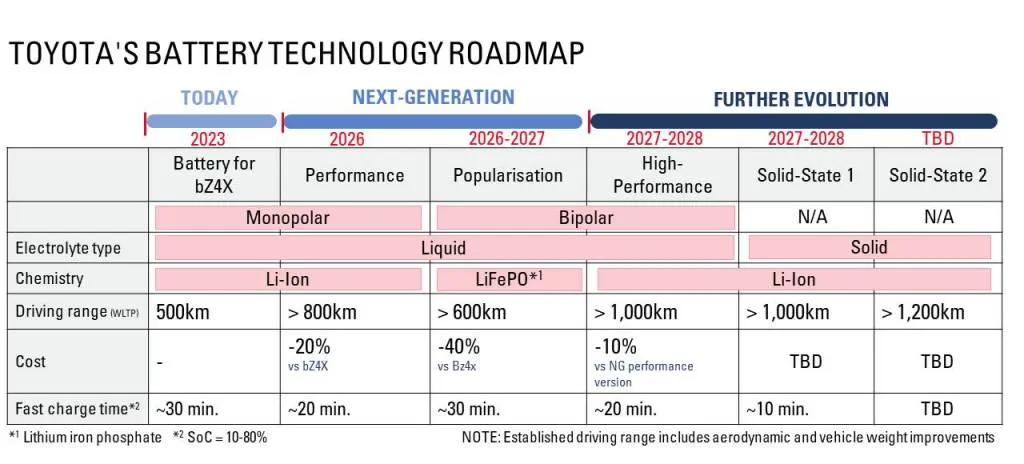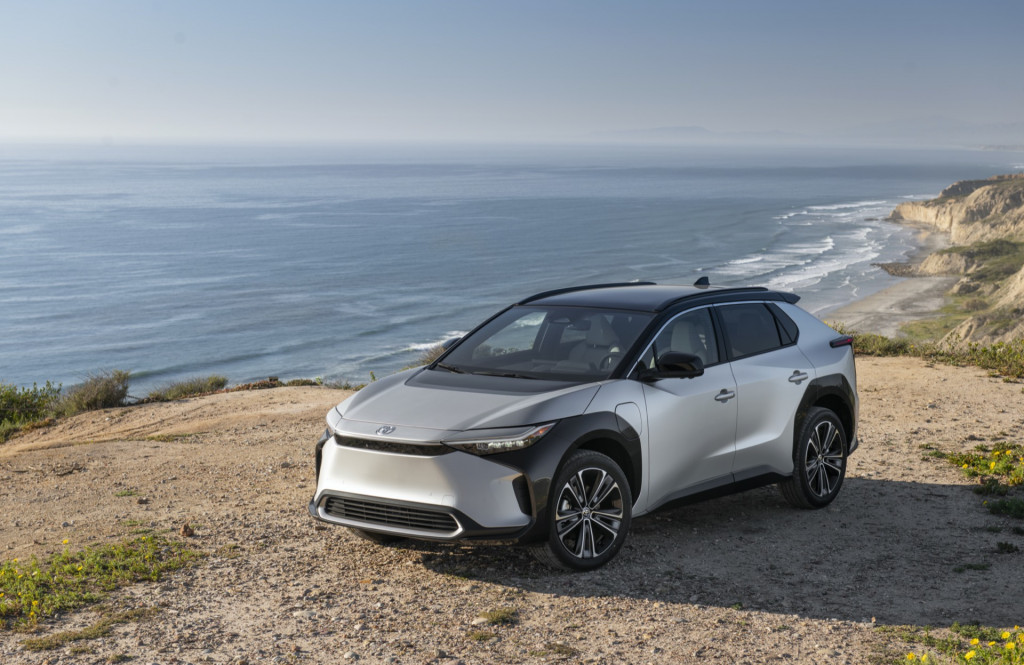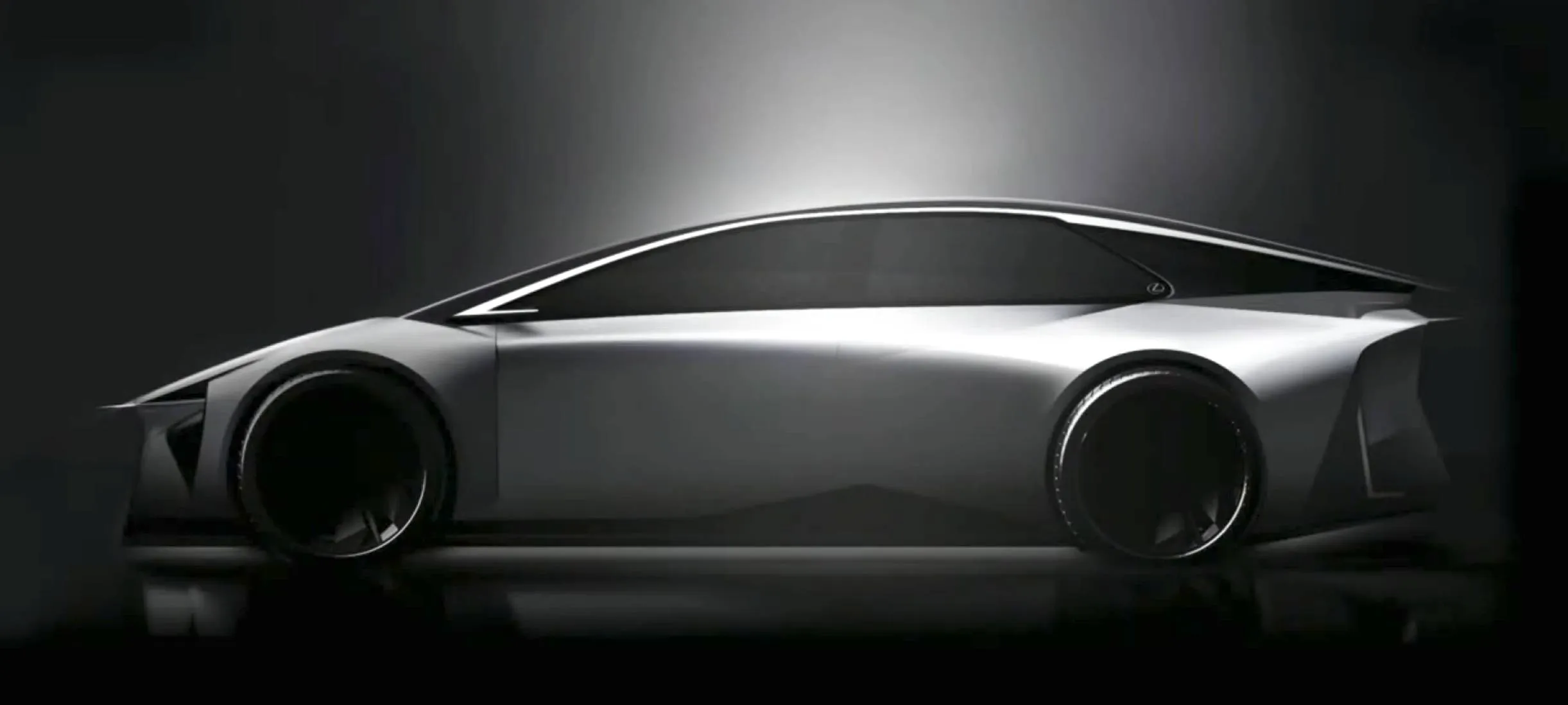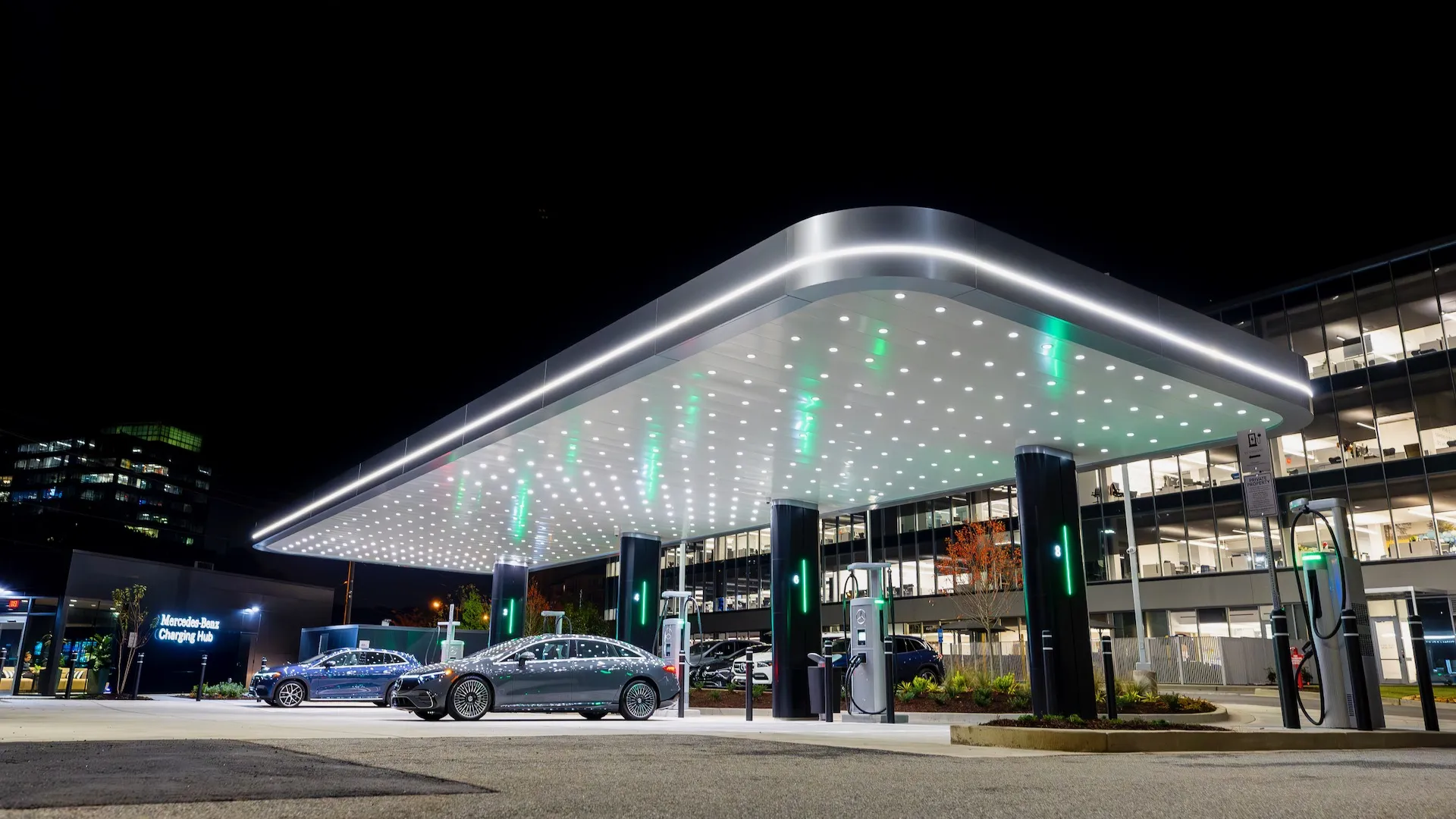Toyota on Thursday provided an update on its battery development plans, including a more detailed roadmap for the rollout of solid-state batteries.
The automaker has five next-generation battery designs, including both liquid and solid electrolytes. Toyota expects the solid-state batteries, which the company has been researching with Panasonic, to be “ready for commercial use” by 2027 or 2028, according to a company press release. This will be made possible by “technological advancements” that can extend battery life, a current weak point of solid-state batteries, Toyota said.
While Toyota originally planned to introduce solid-state batteries in hybrids, with an executive saying last year that this would happen by 2025, the automaker says it’s now focusing on EV applications for the slightly later timeframe mentioned above.

Toyota battery technology roadmap
A first-generation solid-state design will allow for a DC fast-charge time of just 10 minutes for a 10%-80% charge and deliver up to 621 miles of range on the European WLTP testing cycle, according to Toyota. The automaker also confirmed that a second-generation design is in the works, to be introduced sometime after the 2027-2028 launch of the initial solid-state batteries. Toyota expects this version to bump WLTP range up to 745 miles.
Prior to the launch of the solid-state batteries, Toyota will launch two liquid-electrolyte batteries. A “performance” lithium-ion battery will appear in 2026 boasting what Toyota says will be a 20% reduction in cost compared to the battery cells used in the current BZ4X. The DC fast-charge time will be 20 minutes or less for a 10%-80% charge.
Toyota also claims a range of more than 497 miles (again, on the WLTP cycle) when the new lithium-ion battery is combined with planned weight reductions and aerodynamic improvements. The latter will be helped by a move to thinner battery packs, which reduce overall height and thus help improve a vehicle’s coefficient of drag, according to Toyota. The automaker plans to reduce battery-pack heights from the 5.9 inches of the BZ4X packs to 4.7 inches—or even 3.9 inches for sports cars.

2023 Toyota bZ4X Limited AWD
A “high performance” battery debuting in 2027 or 2028 will further increase WLTP range to 621 miles—matching the initial solid-state batteries—while decreasing cost by another 10%, according to Toyota. The automaker has said that affordability, not range, will be priorities in upcoming EVs, so this itself also seems to mark a turnaround.
However, Toyota is planning a “popularization” option using lithium iron phosphate (LFP) chemistry. This will achieve a 20% range improvement over the BZ4X—which is EPA-rated at a maximum 252 miles—with a 40% cost reduction, according to Toyota. The automaker is also aiming for a 30-minute 10%-80% DC fast-charging time.
New battery tech will be introduced with next-generation EVs Toyota plans to begin launching in 2026, possibly including the future EV teased back in May. The automaker expects these new models to account for 1.7 million of the 3.5 million EVs it expects to sell by 2030. Prior to that, Toyota has confirmed a three-row electric SUV for U.S. assembly in 2025.










